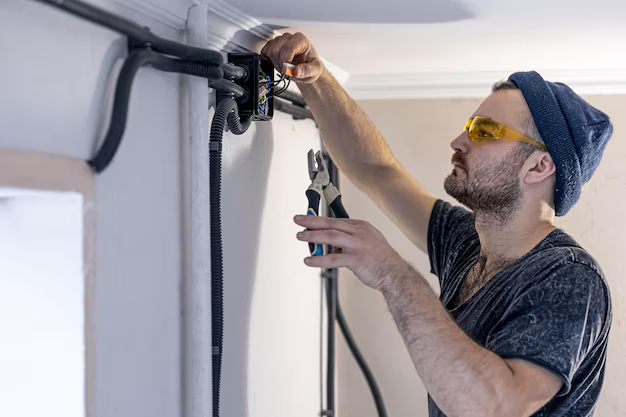Should You Repair or Replace Your Refrigerator? A Comprehensive Guide
Imagine coming home from work, grabbing a refreshing drink from the refrigerator, only to realize it isn’t cool. In a modern world powered by technology, a malfunctioning refrigerator can be more than just an inconvenience; it’s a crisis waiting to happen. Now you're faced with the classic dilemma: should you repair or replace your refrigerator? This article aims to provide insights into making that decision.
Understanding the Signs of Trouble
Recognizing Common Refrigerator Issues
Before deciding whether to repair or replace your refrigerator, you should first diagnose what might be wrong with it. Here are some common problems:
- Temperature Inconsistency: If your refrigerator is not cooling, it could be due to a faulty thermostat or a clogged condenser coil.
- Noisy Operation: Loud noises might indicate problems with the compressor or fan motors.
- Water Leaks: Pooling water could be a sign of blocked drain tubes or defrost issues.
- Ice Maker Malfunctions: An underperforming ice maker might be due to a blocked water line or a failing ice maker unit.
Age and Efficiency Matter
The age of your refrigerator can significantly affect your decision to repair or replace:
- Under 5 Years: Newer models are often worth repairing, as they typically have more advanced technology and energy efficiency.
- 5-10 Years: Consider the cost of repairs against the appliance's value and potential savings from energy efficiency improvements.
- Over 10 Years: Older models may lack in efficiency and technological advancements. Replacement might be a more economical long-term decision.
Cost Considerations
Calculating Repair Costs
Repair costs can vary widely depending on the issue and whether parts need replacing:
- Minor Repairs: Fixing a door gasket or cleaning coils may cost less than major repairs.
- Major Repairs: These include fixing compressors or electronic controls, which can be more expensive and require professional expertise.
Cost of Replacement
Replacing a refrigerator involves more than just buying a new unit:
- Unit Price: Prices vary based on brand, size, and features.
- Installation Fees: Consider possible delivery and installation fees.
- Disposal of Old Unit: Some services charge for taking away the old appliance.
Energy Efficiency and Long-Term Savings
Modern refrigerators are designed to be more energy-efficient than older models. When deciding to replace, consider potential savings on your utility bills.
Evaluating Repair vs. Replacement
Repair Benefits
- Lower Upfront Costs: Repairs can be less expensive initially than purchasing a new unit.
- Quick Fix: Minor repairs can often be completed quickly, minimizing disruption.
- Environmental Impact: Repairing extends the appliance’s life, reducing waste.
Replacement Benefits
- Energy Efficiency: New refrigerators often consume less energy, reducing your carbon footprint and utility bills.
- Advanced Features: Modern models offer improved storage and cooling technology.
- Long-Term Reliability: A new unit reduces the likelihood of facing frequent repairs in the near future.
Practical Tips for Making Your Decision
Here are some essential tips to guide your decision:
- Assess Repair Frequency: If repair needs are frequent, it's likely more economical to replace the unit.
- Evaluate Costs: Compare the total cost of ownership, including potential energy savings from a new model.
- Consult a Professional: A professional assessment can give you clarity on whether a repair is sufficient or if replacement is recommended.
- Check Warranty: If your unit is under warranty, repairs may be partially or fully covered.
🟢 Quick Summary
- 🛠️ Repair if: The issue is minor, the age is under 5 years, and costs are lower than replacement.
- 🔄 Replace if: The refrigerator is over 10 years, repairs are frequent, and efficiency is crucial.
Navigating the Decision with Ease
Refrigerators are vital household appliances, and making a decision on repair versus replacement should be approached with care. By carefully considering cost, efficiency, and long-term impacts, you can make an informed choice that suits your needs and lifestyle.
This guide is designed to offer insight and help you navigate the complexities of whether to repair or replace your refrigerator, ensuring that you make a choice that provides value and convenience. With this information at hand, you are ready to tackle any refrigerator dilemma!

